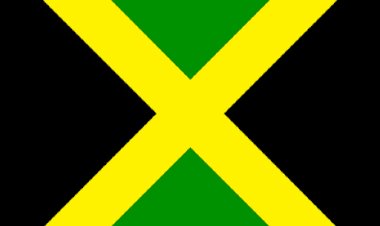Black Lives Matter Facing Financial Scrutiny — Again
The Black Lives Matter Global Network Foundation Inc. denied on Friday being “a target of any federal criminal investigation” in light of a report that the federal government was looking into fraud allegations. The response comes after anonymous sources told the Associated Press that the U.S. Justice Department was investigating whether leaders in the Black […] The post Black Lives Matter Facing Financial Scrutiny — Again appeared first on Capital B News.


The Black Lives Matter Global Network Foundation Inc. denied on Friday being “a target of any federal criminal investigation” in light of a report that the federal government was looking into fraud allegations.
The response comes after anonymous sources told the Associated Press that the U.S. Justice Department was investigating whether leaders in the Black Lives Matter movement’s organization defrauded donors who contributed during the racial justice protests in 2020.
“We remain committed to full transparency, accountability, and the responsible stewardship of resources dedicated to building a better future for Black communities,” the organization said in an emailed statement to Capital B.
Capital B has also reached out to the Justice Department for comment on the reported investigation and if it might lead to criminal or civil cases being filed.
The reported federal investigation has not only drawn new attention to how the donations were distributed, but renews questions about the inner workings of the Black Lives Matter movement. There are two entities. The nonprofit foundation is responsible for raising funds. BLM Grassroots chapters engage in on-the-ground work such as protests and community convenings.
At the height of protests after George Floyd’s 2020 murder, more than $90 million in donations flowed into the foundation from individuals and corporations seeking to support the movement. Many local chapters that year, including its flagship in Los Angeles, said they never received a share of the funds.
The Los Angeles chapter eventually broke away and formed Black Lives Matter Grassroots, a national nonprofit organization led by Melina Abdullah, a professor of Pan-African Studies at California State University, Los Angeles. The group models itself on Civil Rights Era organizing, focusing on supporting local chapters through community resources, legal assistance, protest coordination, and aid for families affected by police violence.
Capital B has reached out to Abdullah for comment.
The challenge of a movement without a single leader
The foundation was founded in 2013 by Alicia Garza, Patrisse Cullors, and Opal Tometi in response to George Zimmerman being acquitted of murder in the death of Trayvon Martin.
Cullors stepped down from her position as the group’s executive director in May 2021, following months of criticism from some grassroots chapters over shifting leadership structures. Garza and Tometi had already disaffiliated from the group.
The foundation “had no structure, which means they had no one to monitor or answer to,” now-retired NAACP Atlanta Chapter President Richard Rose told Capital B in 2022. “It was good and bad because people could do what they wanted to.”
In the beginning, the Black Lives Matter movement operated under some of the philosophies of Ella Baker, an influential civil rights activist of the 1960s. As an adviser to the Student Nonviolent Coordinating Committee, Baker’s ideas challenged traditional approaches to organizing.
Hierarchical groups that grew out of the Civil Rights and Black Power movements typically were structured to place an individual or small group of men at the forefront. That model “allowed for a certain kind of accountability,” Stefan Bradley, professor of African American studies at Loyola Marymount University in Los Angeles, told Capital B in 2022.
But Baker “was opposed to this idea of the need for some kind of messianic figure, particularly a male messianic figure,” Bradley said, and instead believed in “empowering people on the ground to lead themselves.”
The decentralized approach has created challenges. In Atlanta, a self-proclaimed leader of the local Black Lives Matter movement was arrested by the FBI for allegedly using $200,000 of donor funds raised by BLM of Greater Atlanta for personal endeavors. Tyree Conyers-Page pleaded guilty last year to wire fraud and money laundering charges.
In April 2022, New York magazine published an exposé that accused the Black Lives Matter foundation of using donors’ funds in 2020 to purchase a seven-bedroom, seven-bathroom home for more than $5.8 million in Studio City, California.
The Black Lives Matter Los Angeles chapter was able to purchase a property in Leimert Park with their 2020 donations to serve as its headquarters and meeting space. Cullors denied any wrongdoing to the Associated Press in May 2022, but said that she hosted two parties at the house before she stepped down in 2021. Garza left the organization in 2017.
In November 2020, 10 organizations that identified themselves as Black Lives Matter chapters released a public statement calling for financial transparency and accountability from the BLMGNF. A distribution of $21.7 million was made to Black organizations, including local chapters, according to a 2020 impact report. But according to the defunct coalition in June 2021, those funds hadn’t been disbursed. That same year, families of victims of police brutality accused the foundation of using their relatives’ names to gain a profit.
BLM’s impact felt worldwide
While federal police reform and racial justice legislation has been slow to come, Black Lives Matter protests have prompted policy changes in cities around the country, according to Black Lives Matter Grassroot’s 2024 Action Report. Their advocacy lobbied to make Juneteenth a federal holiday. The passage of “Measure J” in Los Angeles that reallocated funds from law enforcement systems such as jails to health care, abortion rights in the Arizona constitution, and legal protections for officers in Buffalo, New York, who intervene to prevent police misconduct.
Those demonstrations also provide support for families and individuals impacted by police brutality.
Numerous chapters have popped up around the world since Black Lives Matter’s inception in 2013. This is the result of the movement’s decentralized approach. Instead, the founders embraced the rapid, unchecked growth of their message, asserting that the Black Lives Matter banner was meant to be “radically inclusive,” as Tometti told The New Yorker in 2020 — carried by countless messengers and embracing various causes.
There are 51 official Black Lives Matter Grassroots chapters across California, Michigan, and in cities including Tampa, Atlanta, Boston, and Boise, Idaho, as well as inside California state prisons at Corcoran, Kern, and Lancaster, according to the 2024 Action Report. There’s also one in Sweden, according to a July press release.
The post Black Lives Matter Facing Financial Scrutiny — Again appeared first on Capital B News.























